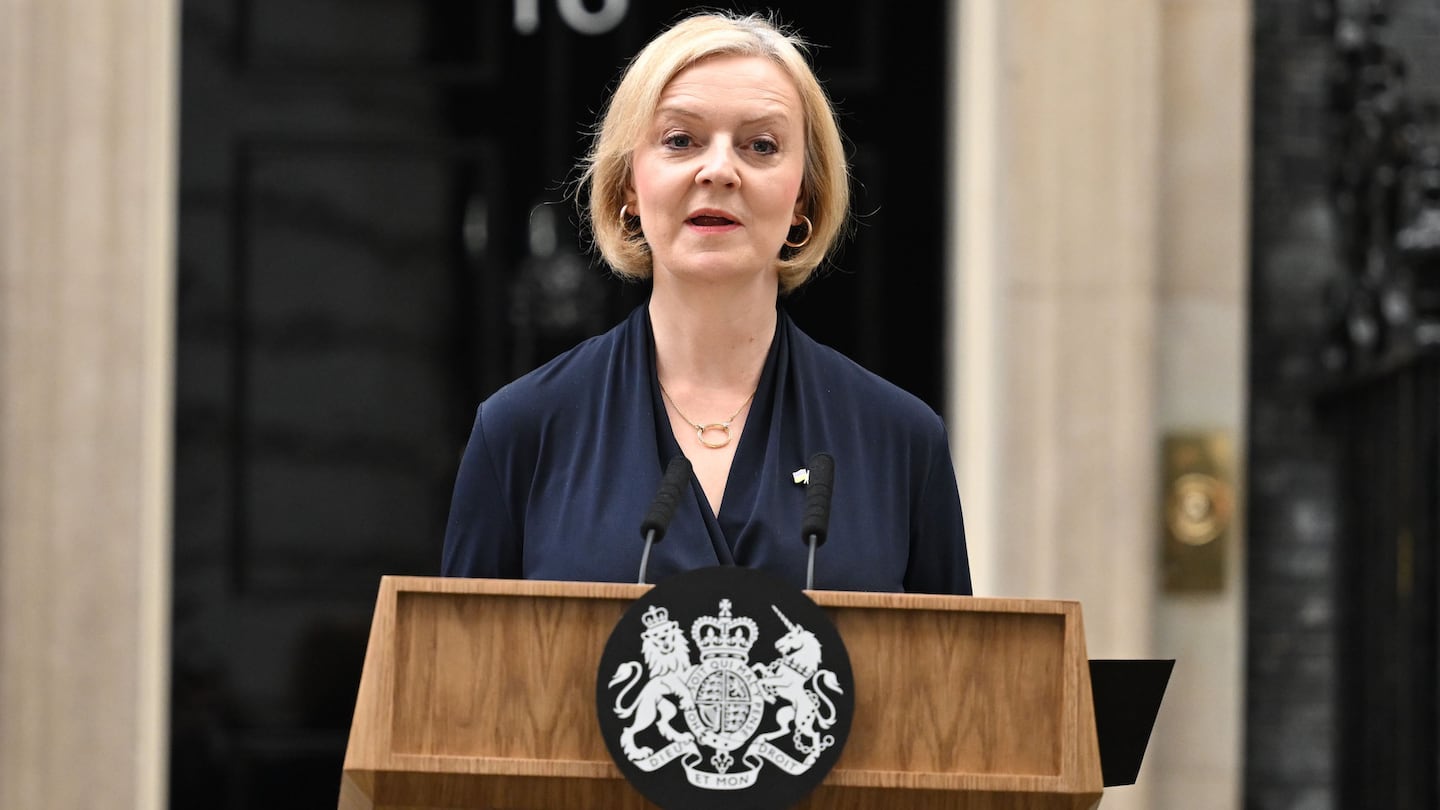
The Business of Fashion
Agenda-setting intelligence, analysis and advice for the global fashion community.

Agenda-setting intelligence, analysis and advice for the global fashion community.

Liz Truss resigned as UK prime minister after a brief and chaotic tenure that saw her announce a massive package of unfunded tax cuts before unwinding most of it in the face of a market rout.
Truss, 47, quit after just 44 days in office, becoming the shortest-ruling prime minister in British history. She came to power in early September promising an all-out push for growth, but her program proved unpalatable to financial markets as both the pound and gilts tanked amid concerns about how she’d pay for her economic plans.
Her departure leaves the ruling Conservative Party badly damaged, languishing more than 30 points behind Labour in the polls after 12 1/2 years in power. Her successor will become the party’s fifth premier in less than seven years since the 2016 Brexit referendum ushered in a period of unprecedented chaos in British politics.
Truss said the party aims to choose her successor within a week and that she will stay on as prime minister until then.
ADVERTISEMENT
Whoever it is will face a formidable task in repairing the Tory party’s reputation and the economy in time for a general election which must take place in January 2025. Truss’s tenure has all but guaranteed post-Brexit Britain’s immediate future is one of higher borrowing costs, weak growth, tax hikes and spending cuts.
“It’s a shambles and a disgrace,” veteran Tory MP Charles Walker told the BBC on Oct. 19. “The damage they have done to our party is extraordinary.”
Candidates for the top job are likely to include Chancellor of the Exchequer Jeremy Hunt, newly promoted from the back benches after Truss sacked Kwasi Kwarteng in a bid to restore calm in the markets, as well as former Chancellor Rishi Sunak -- runner-up to Truss in this summer’s leadership contest. Other contenders in the summer are also likely to be in the fray, including Penny Mordaunt, Kemi Badenoch and Tom Tugendhat. Former Home Secretary Suella Braverman, who was sacked on Oct. 19, may also be in the running.
Truss’s undoing was ultimately a lack of political instinct and awareness of economic reality.
After narrowly winning the leadership without the backing of most MPs, she set out to govern as if she had secured an overwhelming mandate with a barrage of radical measures. Inheriting a divided party, she appointed loyalists to key jobs rather than reaching out to her opponents. And when, at the last, she tried to stamp her authority on the party, she only provoked its anger.
The central mistake of Truss’s term was a massive £45 billion ($50 billion) package of tax cuts, amid the strongest inflation in four decades, that she drew up with Kwarteng and unveiled without any independent analysis of how it would be funded.
The biggest tax giveaway in half a century went further and faster than Truss had signaled during the leadership contest, and the markets reacted violently amid fears it would hamper the battle against inflation and destabilize the public finances. The pound’s tumble to an all-time low against the dollar and the imminent threat of a rout in gilts forced the Bank of England to intervene to prevent a key part of the pensions industry from collapsing.
Truss and Kwarteng tried to repair the damage by first reversing an unpopular move to abolish the 45 percent rate of income tax on the UK’s highest earners. Then on Oct. 14 Truss sacked Kwarteng and scrapped their plan to freeze corporation tax next year. Hunt unpicked most of what remained of the economic strategy three days later, leaving the premier’s credibility shot.
ADVERTISEMENT
The final humiliation came on Wednesday evening as the desperate prime minister tried to corral her angry MPs into the voting lobbies in the House of Commons for a make-or-break ballot that she had no reason to take on. Braverman’s dismissal earlier in the evening for a security breach that in normal times might have earned her a mere reprimand had already alienated a swathe of the right of the party.
Truss won the vote, but in the bitter aftermath she lost her struggle to stay in power.
By Stuart Biggs, Alex Morales, and Alex Wickham; with assistance from Kitty Donaldson, Ellen Milligan, Emily Ashton and Joe Mayes.
Learn more:
The Fashion Fallout From the UK’s Wild Week, Explained
UK Chancellor Kwasi Kwarteng’s mini-budget threw the country’s financial markets into a tailspin, and fashion is feeling the effects.
From analysis of the global fashion and beauty industries to career and personal advice, BoF’s founder and CEO, Imran Amed, will be answering your questions on Sunday, February 18, 2024 during London Fashion Week.
The State of Fashion 2024 breaks down the 10 themes that will define the industry in the year ahead.
Imran Amed reviews the most important fashion stories of the year and shares his predictions on what this means for the industry in 2024.
After three days of inspiring talks, guests closed out BoF’s gathering for big thinkers with a black tie gala followed by an intimate performance from Rita Ora — guest starring Billy Porter.